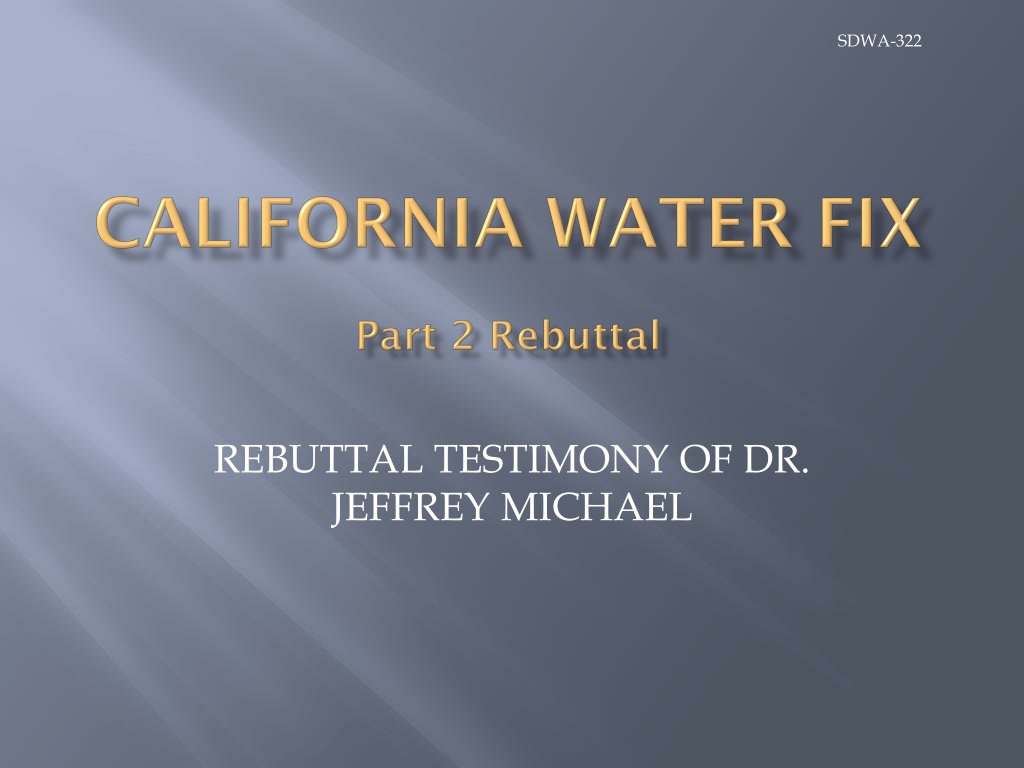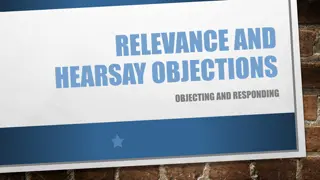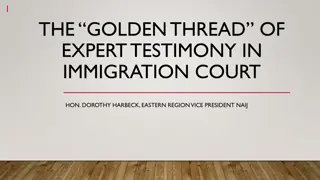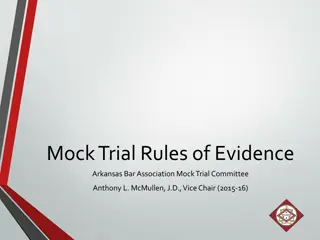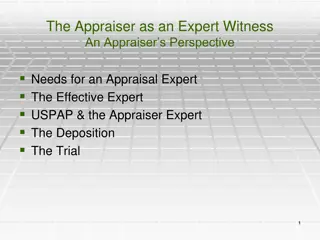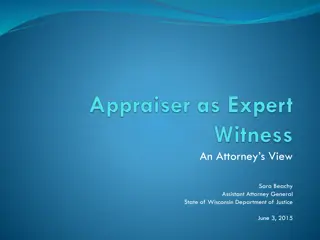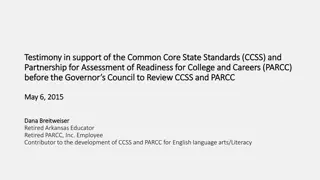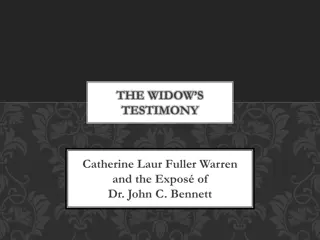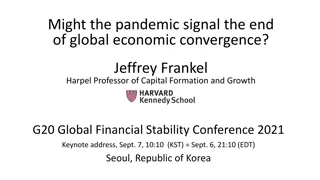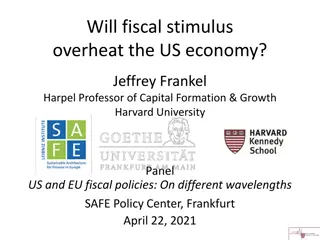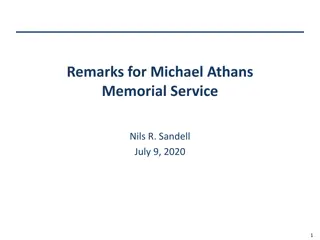Rebuttal Testimony of Dr. Jeffrey Michael on SDWA-322
Dr. Jeffrey Michael and Gwen Buchholz present a detailed rebuttal against the SDWA-322 project, highlighting inconsistencies in economic analysis, project description, and benefits to agriculture. Buchholz emphasizes the improvement of water supply, ecosystem conditions, and economics in California with the implementation of CWF H3+. The project's operating criteria and funding assumptions are also under scrutiny for lacking credibility and feasibility.
Download Presentation

Please find below an Image/Link to download the presentation.
The content on the website is provided AS IS for your information and personal use only. It may not be sold, licensed, or shared on other websites without obtaining consent from the author. Download presentation by click this link. If you encounter any issues during the download, it is possible that the publisher has removed the file from their server.
E N D
Presentation Transcript
SDWA-322 REBUTTAL TESTIMONY OF DR. JEFFREY MICHAEL
SDWA-322 Gwen Buchholz (DWR 1010) a) EIR/EIS does not support claims about economic public interest. b) Project Description Is Inconsistent with WaterFix Economic/Financial Analysis and Evolving Financial Plan c) Benefits to Agriculture Inaccurate As Financial Plan Changes 1) Dr. Michael Shires (WWD 18) Exaggerates Contribution of WWD. b. Mostly Irrelevant to Petition. (although one can indirectly infer WaterFix harms WWD) 2) a.
SDWA-322 Buchholz: Overall, implementation of CWF H3+ will improve water supply, ecosystem conditions, and economics of the state of California. Expert panels for water supply and environmental interests. Economics No Expert Panel. No Feasibility or Benefit-Cost Assessment. Only cited EIR-EIS for support.
SDWA-322 From EIR/S Socioeconomic Chapter (emphasis added) DWR s Economic Analysis Guidebook provides guidance regarding the economic assessments that should be conducted from project formulation through implementation. These include cost effectiveness, benefit-cost, socioeconomic impacts, risk and uncertainty, and financial analyses. This chapter of the EIR/EIS reports the estimated socioeconomic impacts The other economic analyses outlined in the DWR guidebook were not conducted as part of the NEPA/CEQA compliance documentation. EIR/S Response To Comments The issue related to the cost estimate or financial viability as raised by the commenter addresses the merits of the project and does not raise any issues with the environmental analysis provided in the EIR/S.
SDWA-322 Project Includes: Facilities Environmental Commitments Operating Criteria In particular, the project includes new operating restrictions on existing south Delta pumps. Petition Operating Criteria Lacks Credibility Not Supported By Financial Feasibility Analysis Funding agency analysis assumes WaterFix does not require new restrictions on the existing south Delta pumps.
SDWA-322 "these proposed operational criteria would only take effect after the proposed conveyance facilities are operational (Final EIR/EIS, page 3-263) These newly proposed OMR criteria (and associated head of Old River gate operations) are in response to expected changes under the PA, and only applicable after the proposed north Delta diversion becomes operational. Until the north Delta diversion becomes operational, only the OMR criteria under the current BiOps apply to CVP/SWP operations. Biological Opinion Includes Similar Statements
SDWA-322 MWD White Paper says operating criteria just an assumption for the EIR. Actual operations will be determined by adaptive management, so use same operating criteria with and without the project. Compare WaterFix to Existing Conveyance With WaterFix Operating Criteria MWD staff to Board (March 27, 2018 meeting) no one knows whether regulations will become tighter in the future, but if they do, these things kind of move together so that s the 1.3 million acre feet of incremental water supply improvement that we ve talked about for a long time here and we still think that s a pretty good estimate of the difference between with and without the project.
SDWA-322 MWD says 12% change to cost share increases SWP water supply by 156,000 acre feet.
SDWA-322 Increases MWD to at least 65% share. MWD staff on 33% capacity: that s ours to manage and make decisions on.
SDWA-322 Agreement Still Being Developed. Hope that CVP will lease back the 33% capacity (seems very unlikely). Water supply benefits of 33% capacity are calculated using their project description. Negative impact on exchange contractor and wildlife refuge water supply in some years. Estimate an additional 150,000 af of avg. water supply for SWP if CVP does not lease 33% capacity.
SDWA-322 Annual Acre Feet of Delta Exports. (table derived from MWD staff presentation and board materials) CVP SWP Total 2,115,000 2,585,000 4,700,000 No Action Alternative CWF (67% SWP/33% CVP) 2,094,000 2,906,000 5,000,000 CVP leases 33% capacity. CWF (67% SWP/33% MWD) 1,665,000 3,056,000 4,721,000 No CVP lease of 33%. Most likely case Under unsubscribed capacity Master Agreement, WaterFix shifts about 450,000 af of water from agricultural to urban users.
SDWA-322 Lack of financial feasibility and economic benefit-cost analysis reduces credibility of Ms. Buchholz testimony. No support for economic public interest claims. Negative water supply and economic effects on agriculture are likely. Project description is not credible. Major current changes required by financial necessity. Will more changes be required in the future? Dr. Shires testimony is mostly irrelevant.
SDWA-322 Petitioners should provide Master Agreement. (and supplemental EIR/EIS) Financial feasibility analysis of proposed project to safeguard against additional financially driven project changes. Require full public interest analysis, especially environmental, of using a no-project baseline consistent with Petitioners economic analysis and financial planning, the Existing Conveyance With WaterFix Operating Criteria.
